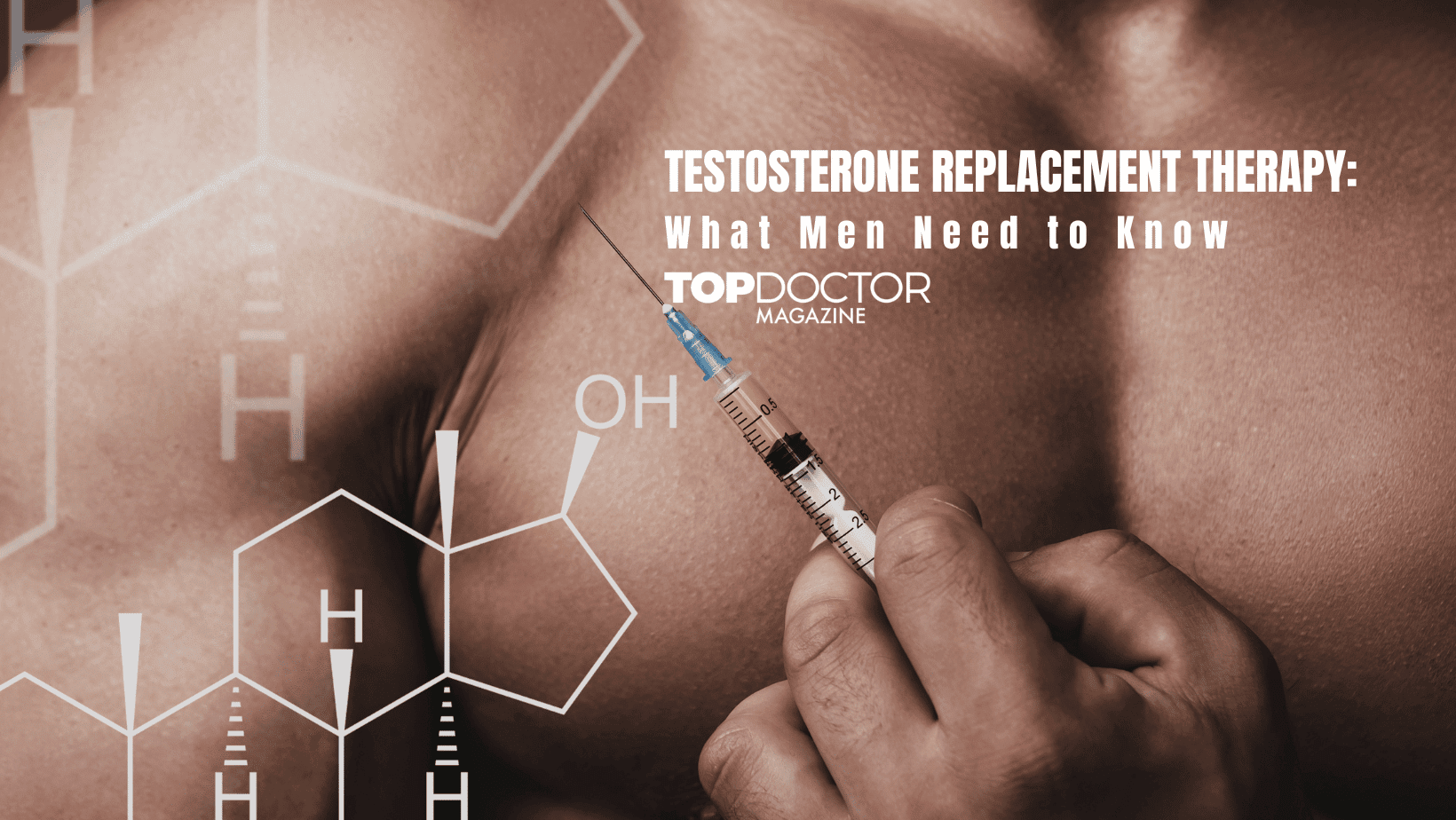Testosterone is a hormone that plays a crucial role in men’s health. It is responsible for the development of male characteristics, such as muscle mass, bone density, facial and body hair, and a deep voice. Testosterone levels naturally decline as men age, and this decline can lead to various symptoms and health concerns. In recent years, testosterone replacement therapy (TRT) has gained popularity as a treatment option for men with low testosterone levels. Below will explore what men need to know about testosterone replacement therapy, including its benefits, risks, and considerations.
What is Testosterone Replacement Therapy (TRT)?
Testosterone replacement therapy (TRT) is a medical treatment that aims to raise testosterone levels in men with low testosterone also known as hypogonadism. Hypogonadism can occur due to various reasons, including age-related decline, testicular injury, hormonal disorders, or certain medical conditions. TRT can be administered through different methods, including injections, gels, patches, and pellets.
Benefits of Testosterone Replacement Therapy
TRT can offer several benefits for men with low testosterone levels. These may include:
- Improved Sexual Health: Testosterone plays a vital role in men’s sexual health, and low testosterone levels can lead to symptoms such as erectile dysfunction, reduced libido, and decreased sexual satisfaction. TRT may help improve sexual function and libido in men with low testosterone levels, leading to a better overall quality of life.
- Increased Muscle Mass and Bone Density: Testosterone is essential for building and maintaining muscle mass and bone density. Low testosterone levels can result in reduced muscle mass, strength, and bone density which may increase the risk of fractures and osteoporosis. TRT may help increase muscle mass and bone density, leading to improved physical performance and overall bone health.
- Enhanced Mood and Energy Levels: Testosterone also affects mood and energy levels in men. Low testosterone levels can lead to symptoms such as fatigue, irritability, and depression. TRT may help improve mood and energy levels, leading to increased motivation, vitality, and overall well-being.
- Better Cognitive Function: Testosterone has been found to play a role in cognitive function, including memory, concentration, and verbal skills. Low testosterone levels have been associated with cognitive decline in some men. TRT may help improve cognitive function in men with low testosterone levels, although more research is needed in this area.
Risks and Considerations of Testosterone Replacement Therapy
Like any medical treatment, TRT also comes with potential risks and considerations. Some of these may include:
- Hormonal Imbalance: TRT aims to raise testosterone levels to the normal range, but it is essential to monitor hormone levels carefully to avoid an imbalance. Too much testosterone can lead to side effects such as acne, increased red blood cell count, prostate enlargement, and potential cardiovascular risks.
- Potential for Infertility: TRT can decrease sperm production which may result in infertility in some men. If fertility is a concern, it is important to discuss this with a healthcare provider before starting TRT.
- Prostate Health: Testosterone is involved in the growth of the prostate gland, and TRT may increase the risk of prostate problems such as benign prostatic hyperplasia (BPH) or prostate cancer. Men with a history of prostate issues should discuss the risks and benefits of TRT with their healthcare provider.
- Cardiovascular Risks: Some studies have suggested a potential link between TRT and cardiovascular risks such as heart attacks and strokes, although the evidence is not conclusive. Men with a history of cardiovascular disease should discuss the potential risks of TRT with their healthcare provider.
Talk with your health provider before beginning Testosterone Replacement Therapy to find out if the choice would be good for you and your health. Be sure to find out the specific benefits and risks associated before you begin treatment!






0 Comments